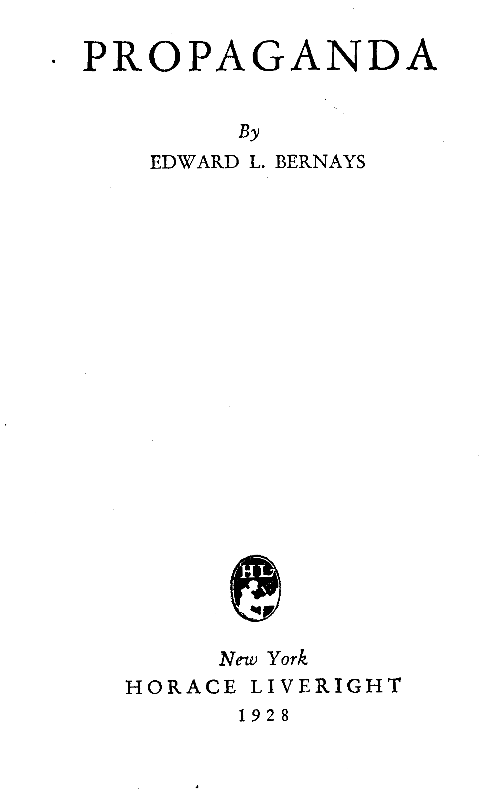Peter Jakobsson: Öppenhetsindustrin / Openness Industry (2012) [Swedish]
Filed under thesis | Tags: · business, copyright, creative industries, crowdsourcing, governmentality, ideology, internet, media industry, openness, openness industry
“Over recent decades several competing descriptions of the media and cultural industries have been put forward. The media and cultural industries have been described as creative industries, copyright industries, and as constitutive of an experience economy. One key element in these descriptions has been the importance of copyright law in a postindustrial economy.
The present study is an analysis of an emerging idea of an industry that functions, in part, outside of the market created by copyright law, and by exploiting, or by building markets on top of, digital, cultural and informational commons. The study is about how this idea is expressed in various forms by business organisations, companies, consultants and policymakers. I have invented the concept of the openness industry to denote the businesses that these organisations and policy makers claim are forerunners and promoters of the idea of ‘openness’ as a business model for the media industry. The purpose of the thesis is to analyse the governmentality and ideology of the openness industry.
A key element in the idea of the openness industry is that internet users can be persuaded to produce symbolic products for it by other means than the economic incentives provided by copyright. Another key element is the high value placed on single individuals in the creation of economic value; but in contrast to how the copyright industries are thought to be dependent on ‘authors’, the openness industry relies on the ‘entrepreneur’. Previous notions of the media and cultural industries have given publishers and producers of film, music and games a central role.The companies that are seminal to the idea of the openness industry are internet and technology companies.” (Abstract)
Doctoral thesis
Media and Communication, Örebro University, Sweden, 2012
Supervisors: Göran Bolin, Mats Ekström
ISBN 9789176688533
209 pages
commentary (Jonas Andersson, in Swedish)
Comment (0)Christopher Hayes: Twilight of the Elites: America After Meritocracy (2012)
Filed under book | Tags: · business, corporatism, corruption, economy, egali, financial crisis, meritocracy, oligarchy, politics, power, united states

A powerful and original argument that traces the roots of our present crisis of authority to an unlikely source: the meritocracy.
Over the past decade, Americans watched in bafflement and rage as one institution after another – from Wall Street to Congress, the Catholic Church to corporate America, even Major League Baseball – imploded under the weight of corruption and incompetence. In the wake of the Fail Decade, Americans have historically low levels of trust in their institutions; the social contract between ordinary citizens and elites lies in tatters.
How did we get here? With Twilight of the Elites, Christopher Hayes offers a radically novel answer. Since the 1960s, as the meritocracy elevated a more diverse group of men and women into power, they learned to embrace the accelerating inequality that had placed them near the very top. Their ascension heightened social distance and spawned a new American elite–one more prone to failure and corruption than any that came before it.
Mixing deft political analysis, timely social commentary, and deep historical understanding, Twilight of the Elites describes how the society we have come to inhabit – utterly forgiving at the top and relentlessly punitive at the bottom – produces leaders who are out of touch with the people they have been trusted to govern. Hayes argues that the public’s failure to trust the federal government, corporate America, and the media has led to a crisis of authority that threatens to engulf not just our politics but our day-to-day lives.
Upending well-worn ideological and partisan categories, Hayes entirely reorients our perspective on our times. Twilight of the Elites is the defining work of social criticism for the post-bailout age.
Publisher Crown Publishers, a division of Random House, New York, June 2012
ISBN 0307720470, 9780307720474
320 pages
review (Glenn Greenwald, Salon)
review (Aaron Swartz)
review (David Brooks, The New York Times)
review (Hua Hsu, Slate)
wikipedia
publisher
google books
PDF (EPUB)
Comment (0)Edward L. Bernays: Propaganda (1928)
Filed under book | Tags: · advertising, art, business, democracy, education, marketing, politics, propaganda, psychology, public relations, science

A seminal and controversial figure in the history of political thought and public relations, Edward Bernays (1891–1995), pioneered the scientific technique of shaping and manipulating public opinion, which he famously dubbed “engineering of consent.” During World War I, he was an integral part of the U.S. Committee on Public Information (CPI), a powerful propaganda apparatus that was mobilized to package, advertise and sell the war to the American people as one that would “Make the World Safe for Democracy.” The CPI would become the blueprint in which marketing strategies for future wars would be based upon.
Bernays applied the techniques he had learned in the CPI and, incorporating some of the ideas of Walter Lipmann, became an outspoken proponent of propaganda as a tool for democratic and corporate manipulation of the population. His 1928 bombshell Propaganda lays out his eerily prescient vision for using propaganda to regiment the collective mind in a variety of areas, including government, politics, art, science and education. To read this book today is to frightfully comprehend what our contemporary institutions of government and business have become in regards to organized manipulation of the masses.
Publisher Horace Liveright, New York, 1928
159 pages
The Century Of The Self: One: Happiness Machines (documentary film by Adam Curtis featuring Edward Bernays)
PDF (no OCR)
View online (HTML)

